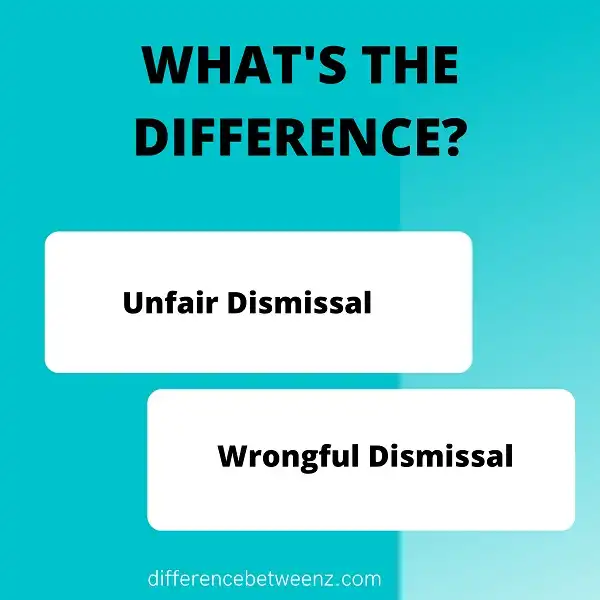Are you wondering what the difference between unfair dismissal and wrongful dismissal is? Both are types of terminations, but they are actually quite different. In this blog post, we will outline the key differences between these two types of dismissals. We will also discuss some of the things you should consider if you are facing termination. Keep reading to learn more!
What is An Unfair Dismissal?
An Unfair Dismissal is a term used in employment law that refers to the termination of an employee’s contract of employment by their employer, where the dismissal is deemed to be unfair. An Unfair Dismissal can also refer to a situation where an employee is constructively dismissed, which is where the employee resigns due to the employer’s conduct. An Unfair Dismissal can occur for a number of reasons, including if the employer has not followed the correct procedure, if the dismissal is discriminatory, or if it is considered to be harsh, unjust, or unreasonable. If an employee believes that they have been unfairly dismissed, they can make a complaint to their employer or take legal action.
What is a Wrongful Dismissal?
- Wrongful dismissal, also known as wrongful termination or wrongful discharge, is a type of legal claim in which an employee contends that he or she was fired in violation of an agreement or contract between the employer and employee, or in violation of an implied promise not to fire employees except for “just cause.” Wrongful dismissal claims are most commonly based on allegations of breach of contract, although some may also allege violations of statutory rights, such as those provided by anti-discrimination laws.
- In order to succeed in a wrongful dismissal claim, an employee must typically show that he or she had an employment contract with the employer, that the contract was breached by the employer, and that the employee suffered damages as a result of the breach. Wrongful dismissal claims are distinct from claims for unemployment benefits, which are based on whether the employee was terminated for “just cause.”
- Wrongful dismissal claims are also distinct from workers’ compensation claims, which are based on whether the employee was injured while working. Finally, wrongful dismissal claims are distinct from constitutional claims alleging that the employee was fired in violation of his or her constitutional rights.
Differences between An Unfair Dismissal and a Wrongful Dismissal
An Unfair Dismissal occurs when an employee is terminated from their position for an invalid reason, such as discrimination or retaliation. A Wrongful Dismissal, on the other hand, occurs when an employee is terminated in breach of their contract, such as being laid off without proper notice. While both An Unfair Dismissal and a Wrongful Dismissal can be devastating to the employee, An Unfair Dismissal is more likely to result in legal action, as it is unlawful. As a result, An Unfair Dismissal is generally more serious than a Wrongful Dismissal.
Conclusion
While an unfair dismissal may seem like the easier option, it can often lead to more costly consequences. If you are considering dismissing an employee, be sure to speak with a lawyer first to understand your options and the potential risks involved. At the very least, be sure to follow all of the proper steps in order to minimize those risks. Dismissing an employee is never easy, but it’s important to do so in a way that protects both you and your company.


